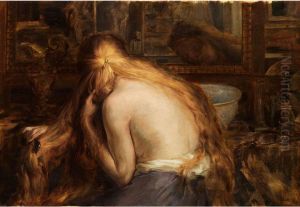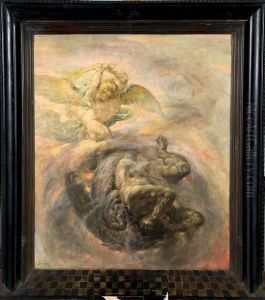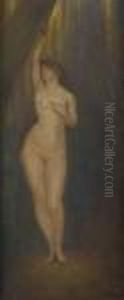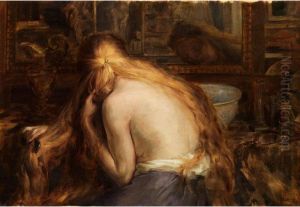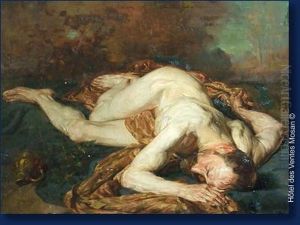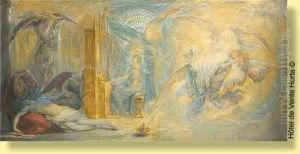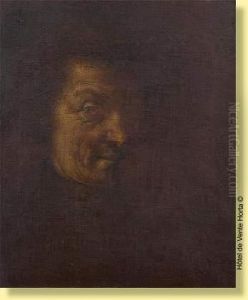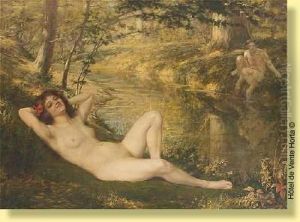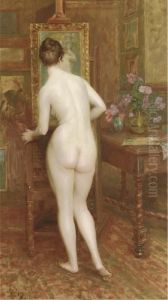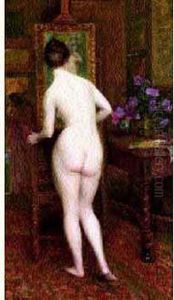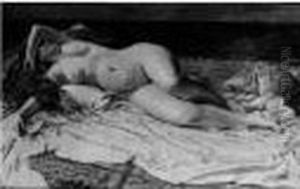Auguste Leveque Paintings
Auguste Lévêque was a Belgian painter, sculptor, and writer, known for his contributions to Symbolism and his exploration of themes like social justice, human passions, and the metaphysical. Born in Nivelles, Belgium, in 1866, Lévêque emerged as a significant figure in the Belgian art scene towards the end of the 19th century and the early 20th century. He was part of a generation of artists who sought to express the complexities of the human condition beyond the visible world, delving into the realms of the spiritual and the mystical.
Lévêque's artistic journey was marked by a fascination with human emotion and societal issues, which he portrayed through a mix of realism and symbolism. His works often depicted scenes of labor, social inequality, and the human struggle, earning him a reputation as an artist deeply engaged with the issues of his time. Despite the evident social commentary in his art, Lévêque's work transcended mere political statement, aiming instead to probe deeper into the existential queries that have perennially haunted mankind.
Throughout his career, Lévêque also explored various mediums, including sculpture and literature, showcasing his versatility as an artist. His sculptures, much like his paintings, were characterized by a blend of naturalistic detail and symbolic abstraction. As a writer, he contributed essays and critiques to contemporary art discussions, further establishing his intellectual presence in the Belgian art world.
Auguste Lévêque's legacy is that of an artist who navigated the cusp of modernity, grappling with the changes and challenges of his era through a deeply symbolic and introspective body of work. He passed away in 1921, leaving behind a portfolio that continues to be appreciated for its depth, beauty, and social relevance. His contributions to Symbolism and Belgian art are remembered as pivotal in the transition towards modern artistic expressions, making him a key figure in the understanding of late 19th and early 20th-century European art.
![[la Baccanale]](https://www.niceartgallery.com/imgs/764267/s/auguste-leveque-la-baccanale-122f2ea9.jpg)
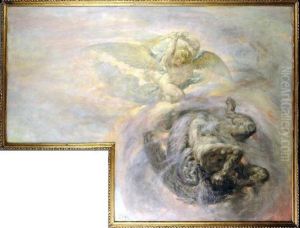
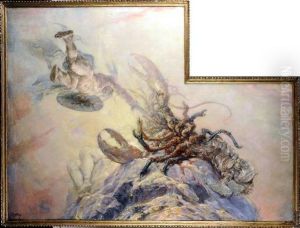
![[nu Feminin]](https://www.niceartgallery.com/imgs/764260/s/auguste-leveque-nu-feminin-5811a5e2.jpg)
